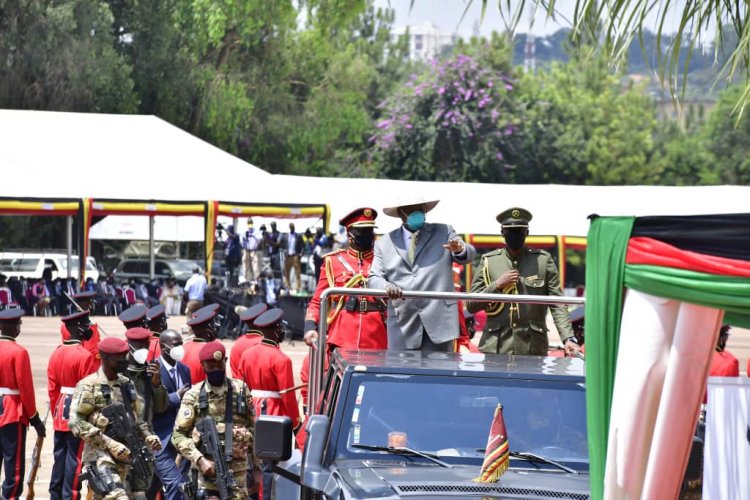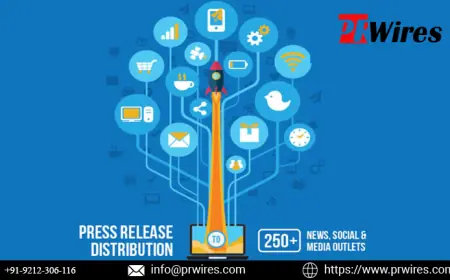Sypnosis for Uganda's 59th Independence day anniversary
“Liberty, when it begins to take root, is a plant of rapid growth.” -George Washington

We are today 9th October 2021 marking 59 years of our independence, the independence of Uganda. We have some of the Ugandans who were teenagers at the time of our independence. These are sometimes called baby boomers. They are senior citizens now. But they have no firsthand experience of what it was like to live under colonialism.
They only read about it, or are informed by those who lived through that experience. On a day like this, therefore, we need to remind ourselves of what our independence really means. The founding fathers of our nation, the likes of Sir Edward Mutesa, Dr Apollo Milton Obote, Ignatious Musazi Kangave, William Wilberforce Rwetsiba, Sir William Nadiope, Benedict Kiwanuka and others must be celebrating wherever they are because their resilient efforts to give us independence were not in vain
When the British handed Uganda Independence on October 9, 1962 at - then Kololo Independence Square, the Queen’s Representative, the Duke of Kent, handed over the Constitutional Instruments of Independence to the Executive Prime Minister, Milton Obote. Sir Edward Mutesa II, then-Kabaka of the Buganda Kingdom and who, in 1963, was elected by Parliament to be the first President of Uganda, stood next to Milton Obote during the ceremony.
Since then, Uganda has travelled on a journey full of challenging economic and political changes. These changes made Uganda a unique country in Africa compared to other African countries.
Indeed, Uganda is the only country in East and Central Africa, that has had nine Presidents since Independence, compared to other African countries in the same region, which have had three or four Presidents since Independence, even when most of them achieved Independence almost at the same time in the 1960s.
Colonialism embodies the indignity of being governed without your consent; consent that could only be expressed through democratic means. But to be colonised is more than being subjected to an unjust system of government; it is also an ugly infringement on all aspects of human life; it is an arrogant denial of the colonised person’s physical and mental freedom; it is an affront to a person’s dignity and humanity; a brazen disrespect for his customs and his way of life; and a callous disregard of his development needs.
Our whole existence has been controlled by people with an alien attitude to life, people with different customs and beliefs. They have determined the forms of government, the type of economic activity–if any–and the schooling which our children have had. They have shaped the present generation of Ugandans more than any other influence.
We have enjoyed self-rule for 59 years now, we are respected, and we exercise our right to self-determination. We also realise that the responsibility for our development and the destiny of our nation lies in our own hands. That in itself is sufficient reason for us to be so happy and to celebrate today.
We have built ourselves the foundations of a free nation; a nation
characterised by unity, respect and solidarity; a nation in which there is no discrimination on the basis of colour, race, gender, tribe, religion, or place of origin; a nation in which we all affirm one human equality and deserve equal respect; a nation in which citizens are not classified as either masters or servants; a nation in which land and other natural resources are a common and shared heritage of all of us, not the exclusive property of a few clever ones; a nation that promulgates equal opportunities for self-development for everyone.
We have tried to improve those opportunities for self-development and we shall continue to do so in various ways.
On October 9th 1962, Uganda did not attain economic power–and certainly not economic independence. We gained the political power to decide what to do; we lacked the economic and administrative power which would have given us freedom in
those decisions. For it is no use deciding to import more goods than you have foreign currency to pay for, or deciding to provide free books for all children if you have neither the teachers, the buildings nor the money to make a reality of that decision.
At this point in the history of our country, having restored the small enclave modern economy of 1971 that had been destroyed by Idi Amin in the 1970s, having greatly expanded it from US$1.3billion in 1986 to now US$40billion, we have a number of points that we need to concentrate on in order to transform Uganda into a Middle income country, on the road to becoming a First World country. And the journey so looks impressive if we stay the course with a clear vision.
Education.
In these 59 years of independence, we have done a lot to build the economic and administrative capacity to implement the development decisions we rightly make as a free nation, and as a free people.
We have addressed the bodily needs, and built the intellectual capacity of our people, in terms of health and education delivery
We have invested a lot in educating our people, using new and refocused curricula. It is true we still have problems in this area, but we have also made impressive gains and we shall continue to do so. For example, we have increased the number of primary schools to over 10,78million pupils.
• We have increased the number of secondary schools going kids to over 2million students now. There are 53 universities in Uganda, 9 of them are public and 44 are private and constituent colleges thereof, and more are in the pipeline.
Ministry of agriculture
Agriculture remains the main thrust of Uganda’s economic growth. It employs about 64% of Ugandans (and about 72% of all youths highlighting its importance to house hold income growth.
The value of agriculture exports has increased over time to USD 1.5billion representing a growth of the last four financial years.
We are now exporting seven million bags of coffee to the western and still growing. Fortunately, the global demand is able to take all the coffee because the global coffee demand is 166.34million, 60kg bags. The global demand for milk products is 906billion litres, valued at US$458.1billion. Therefore, our present production of 2.6billion litres of milk, can enter the global market provided we solve the problem of cattle diseases (foot and mouth, CBPP, anthrax, etc.) and, of course, also offer competitive prices.
Progress of the ICT Sector
Increased employment and growth opportunities and ICT has created 500,000 (direct and indirect jobs) within the ICT sector
Free Wi-Fi dubbed ‘MyUg’ is provided to the general public in 284 locations in the Central Business District of Kampala and Entebbe from 5pm to 6am on Monday to Friday and full availability over the weekends.
There are over 2 million users are on the MYUG platform each month. 37 MDAs are using the Unified Messaging and Collaboration System (UMCS).
Over 106 e-services can be accessed through the e-services portal www.ecitizen.go.ug and over Over 10 post offices and public libraries converted into ICT access centers for e-Government Services.
Telephone and internet Subscriptions
Currently, there are more than;
25.6 million Mobile phone subscribers
15.2 million Internet users.
26.4 million Mobile money subscribers, with an active user base of 15.6 million.
Mobile transactions have reached a high of UGX 19 trillion.
Government is promoting ICT innovation to create jobs, for import substitution and to avoid over dependence on foreign ICT products.
A National ICT Innovation Hub for 500 innovators has been constructed in Nakawa Innovation grants have been given to 112 Innovators and to 6 private sector Innovation Hubs under the National ICT Initiatives Support Programme (NIISP).
In November 2019, mobile phone and computer manufacturing by Simi Mobile was launched in Namanve by H.E and the company has just shipped the first consignment of18, 000 mobile phones assembled in UG to Morocco.
Health
Uganda has made significant strides in the health sector. These are some of the examples.
• The total number of referral hospitals has increased to 181
• Rural Health Centre IVs are 222, health centre111 are 1,510, health centre11s are 3,364 and 1,578 private clinics across the country and more are coming up.
• The number of the Ugandans specialized doctors has increased a hundred times, compared to the situation at independence when we did not have even a single African medical consultant.
• Infant mortality has fallen to 46 per the one thousand new born.
• Life expectancy currently is at 63-71 years .Today, about 50 per cent of our people in rural areas, and 70 per cent in urban areas, have access to safe water.
Economic Infrastructure
By 1962, we had only one International Airport i.e Entebbe International Airport; we are now in the final stages of completing the Kabaale International Airport in the Albertine region.
Uganda’s road network has improved significantly arising from the increased funding and the road sector reforms of the 1990s compared to the pre-independence 1962 situation when majority of the roads were impassable if not non existence at all especially in areas where there were no minerals to export of commercial crops which were forcefully farmed for the colonial government.
Before independence, when Uganda was still under the British Colonial rule, a total of 692km of roads were upgraded to bituminous standards with the last roads to be constructed just before independence (completed in 1961) being the Tororo - Mbale-
Soroti, Iganga - Kaliro and Jinja-Kamuli Roads. For the post-independence period between 1962 and 1986, a total of 1,175km of new roads were constructed averaging 49km of roads constructed per year.
Since 1986, however, a total of 4,793km of new paved/tarmac roads have been constructed and a total of 1,924km of existing dilapidated paved roads reconstructed (this is because paved roads last on average for 15years). So, in total the current Government has tarmacked a total of 8,588km of roads which translates to an average of 252km of paved roads per year.
Thousands of bridges and roads networks have been put in place across the country and many more are coming on board. Very important to note these are constructed by Ugandans educated here in our universities and other technical colleges. True, some other kinds of expertise is still sourced from outside countries but the journey to become self sustaining in areas of engineering and ICT is on course.
Progress in the energy sector
The installed power generation capacity of the energy sector has increased more than six-fold since the early 2000s reaching 254MW of installed capacity in December 2019 (ERA, 2019). Since the introduction of the reform agenda, UEGCL and independent power
producers have installed numerous power generation plants. The installation of large-scale hydropower dams has contributed most significantly to the increased capacity, accounting for eighty percent of the total installed generation capacity in 2019. The installed capacity comfortably met the country’s peak demand for electricity in 2018, raising concerns about oversupply. New large-scale hydropower dams, like Karuma, coming online is expected to significantly increase the installed capacity.
We cannot list all our successes, in all sectors. Most of them are obvious. We have made strides in building a national capacity for agricultural and livestock research, with widely respected research institutions and personnel. We have made tremendous progress in mining and tourism and the revenues so far accrued are very impressive.
Uganda’s foreign policy is excellent. We have good bilateral and multilateral engagements that have increased our foreign direct investments in our country. We continue to share experiences and trade with other countries across the region and the rest of the world.
Uganda is peaceful and stable. Our national defense forces the UPDF in Somalia under the AMISOM as they continue to pacify this once war torn republic. Uganda is an island of peace and stability and it is no wonder that we are currently hosting 1.5 million refugees from Africa and parts of Asia.
We have been free for 59 years, but our independence is being constrained by low income at house hold levels. Today, the greatest enemy of our independence is poverty. However, the correct social and macro-economic policies we are pursuing, together with our peace, stability, solidarity and natural resources, constitute a firm basis upon which to accelerate our war on poverty. It was through our unity, our stability, our determination, our discipline and the spirit of self-development that we got our independence. It is these same attributes that will enable us to win the war against poverty, and hence strengthen our independence.
The oil discoveries realized in the Albertine region give us more hope in making the economic paradigm shift required to transform Uganda into a modern state. Indeed, all the requisite arrangements have been made both at the national level and for the investors comfort for extraction of this critical resource to be brought on board in 5 years.
Lastly, we can learn a lot from the wise words of Mwalimu Julius Nyerere when he was receiving the instruments of power as Prime Minister of Tanganyika on 1st May 1961. He said:
“I have talked to you before about poverty, ignorance, and disease. But in fact, if we defeat poverty, we shall have achieved the means by which we can defeat ignorance and disease. Yet poverty, is something that really only you can fight. If you have cotton unpicked on your shamba, if you have cultivated half an acre less than you could cultivate, if you are letting the soil run needlessly off your land, or if your shamba is full of weeds, if you deliberately ignore the advice given to you by the agricultural experts, then you are a traitor in the war. You are failing all of us Tanganyikans, because you are not fighting to the limit against the common enemy of poverty.”
This quotation from the founding father of the Tanzania nation summarises it all for Ugandans as we celebrate our independence under the appropriate theme, “Celebrating our 59th Independence Day as we secure our future through national mindset change”. There can never be true independence if we are starving or if we produce for consumption. We must produce enough for export as well and continue with innovations to fully industrialise our economy.
We aspire to live as a modern country like those who colonized or even be better than them because some other former colonies have attained those heights. This might take us some years but we are now sure that we will attain it. With determination, initiative and cooperation we shall succeed.
What's Your Reaction?
 Like
0
Like
0
 Dislike
0
Dislike
0
 Love
0
Love
0
 Funny
0
Funny
0
 Angry
0
Angry
0
 Sad
0
Sad
0
 Wow
0
Wow
0
























































